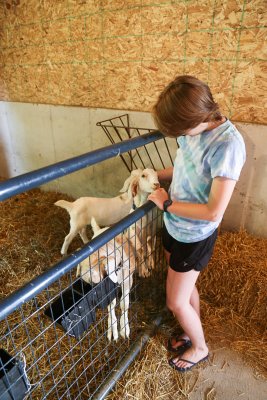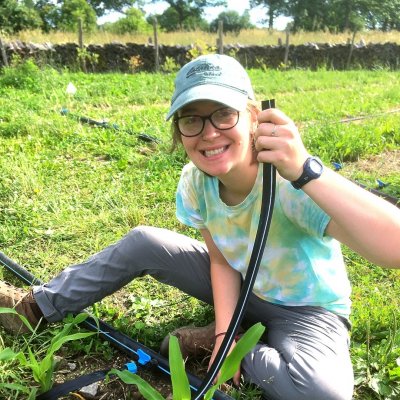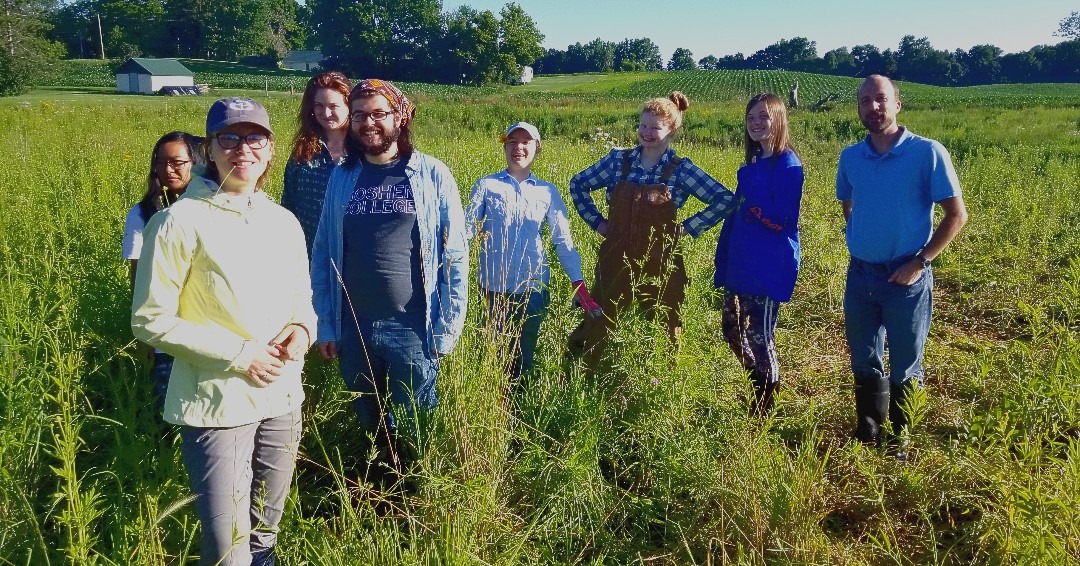Farm as a classroom: Agroecology Summer Intensive is rich in experience
By Nick Yutzy ’21

For many, a summer full of farm chores with pigs, goats and hens sounds like a job on the family farm, but for junior Heather Gabel and six other Goshen College students, it earned them 15 college credits.
Gabel, a sustainable food systems major from Orange City, Iowa, spent 10 weeks of her summer immersed in the lush green foliage and wild prairies at Merry Lea Environmental Learning Center as a part of the Goshen College Agroecology Summer Intensive (ASI). The program emphasizes experiential learning in nature while learning from various participants in the food system, all to get a better grasp on how to live more sustainably.
Although the summer intensive is required for her major, Gabel knew she wanted to take part in it once she heard about the course.
“It’s an experience-heavy semester, and that sounded like just what I needed,” Gabel said.
Gabel and the rest of the class stayed in Rieth Village, an ecological field station located on Merry Lea’s campus. Together, the group lived, studied, ate and worked together.
They were tasked with choring for pigs, baby goats, milk goats, laying hens, broiler hens and cattle every sunrise. Every day, they made new discoveries on how to properly care for animals.
“It has been so great to learn how to interact with animals and make sure they are happy and healthy,” Gabel said.
In addition, the group was in charge of the education garden at Merry Lea, a garden used for educational tours and kids’ programs.
“We learned how to plant, weed, fertilize, irrigate and harvest all sorts of plants,” Gabel said.

Woven in with their daily chores, ASI students sat in on lectures in a more traditional classroom setting to delve deeper into the experiential learning that was taking place.
Once a week, ASI participants visited people involved throughout the food system, including co-op managers, concentrated animal feeding operation farmers, food bank directors, poultry processing plant employees and more. Through these interactions, Gabel was challenged with different perspectives from a diverse group and what sustainability means for them.
“I don’t know if my perspective on sustainability has necessarily changed,” Gabel said, “but it has definitely opened my mind to how complicated the idea of sustainability, especially in the food system, is.”
By gaining first-hand experience working within the sustainable farming system, Gabel not only received class credit, but she deepened her understanding of what it means to work, act and live sustainably.
“I thought I had a semi-grasp on the food system before,” Gabel said. “But there is so much you don’t know until you experience it.”





